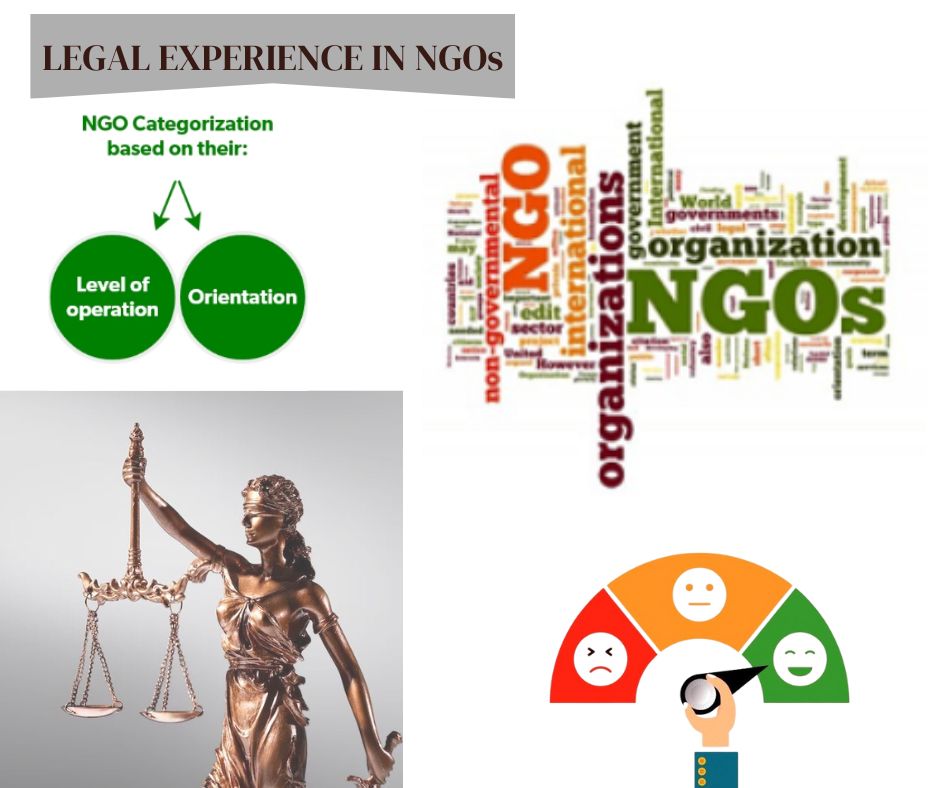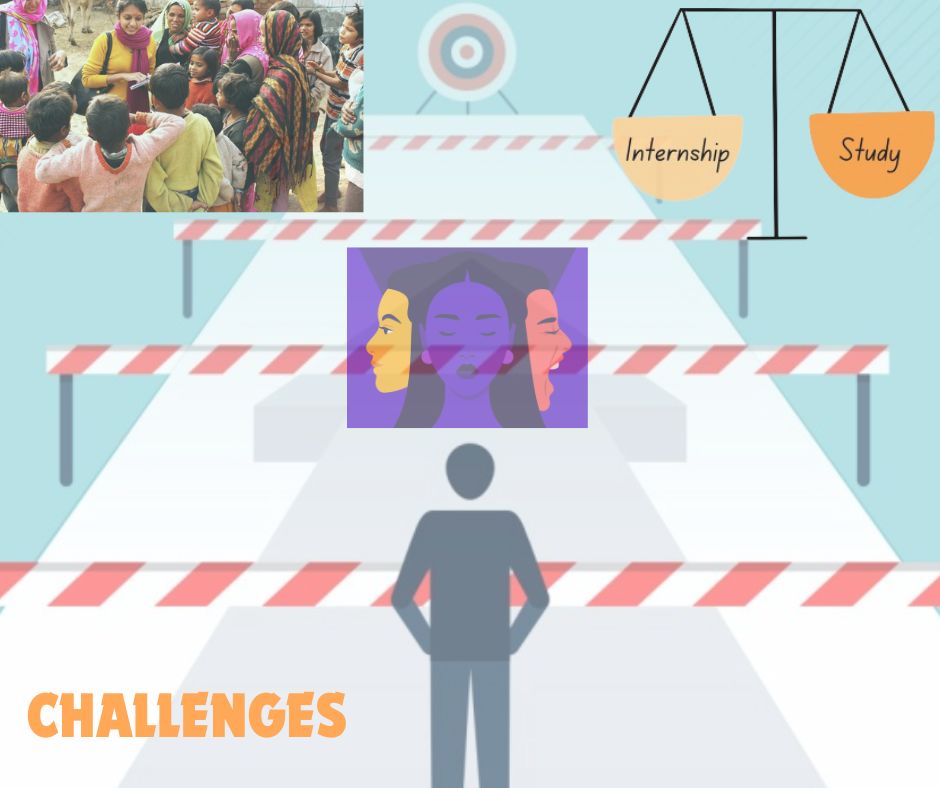A legal career requires more than theoretical knowledge. Practical experience is crucial. One effective way to gain this experience is through law internships in Indian NGOs. These internships provide invaluable insights into the legal field while contributing to societal welfare.
This article serves as a comprehensive guide to help you find and secure NGO internships for law students and guides you on how the legal experience in non-government organisations can help shape a successful law career for you.
Understanding the Importance of NGO Internships

Interning at an NGO (Non-Governmental Organisation) can be a valuable experience for law students in India for several reasons:
- Real-world legal experience: NGOs often deal with a wide range of legal issues, such as human rights, environmental law, and social justice. Gaining legal experience in non-government organisations means that law students get to apply their theoretical knowledge to real-world situations, gaining practical experience in legal research, drafting, advocacy, and client interaction.
- Exposure to diverse legal issues: NGOs typically work on various social and legal issues that may not be covered extensively in law school curricula. Law internships in Indian NGOs expose students to diverse legal fields, broadening their understanding of the law and its impact on society.
- Networking opportunities: NGOs often collaborate with lawyers, activists, policymakers, and other stakeholders in the legal field. NGO internships for law students provide them with opportunities to network with these professionals, build valuable connections, and gain insights into different career paths.
- Skill development: As mentioned above, interning with an NGO helps students develop essential skills such as legal research, drafting, advocacy, communication, teamwork, and problem-solving. These skills are crucial for a successful legal career, regardless of the specific field a student chooses to pursue.
- Social impact: NGOs work towards social change and advocacy, addressing issues that affect marginalised communities and the environment. Law internships in Indian NGOs allow students to contribute to social causes they care about, making a positive impact on society while gaining valuable legal experience.
- Career exploration: Legal experience in non-government organisations allows students to explore different areas of law and identify their interests and passions. This can be particularly beneficial for students who are unsure about their career path or want to gain experience in a specific legal field.
- Enhanced resume: Listing an NGO internship on a resume demonstrates a student’s commitment to social justice, pro bono work, and practical legal experience. This can be a valuable asset when applying for jobs or further studies in the legal field.
Overall, NGO internships for law students offer them a unique opportunity to gain practical legal experience, develop essential skills, contribute to social causes, and explore different career paths. It is a valuable experience that can significantly enhance a law student’s personal and professional development.
Step-by-Step Guide to Finding NGO Internships
- Identify Your Interests and Goals: Before you begin your search, reflect on your interests and career goals. Consider the areas of law that intrigue you, such as human rights, environmental law, or corporate social responsibility. Understanding your preferences will help you target the right law internships in Indian NGOs.
- Research Potential NGOs: Start by compiling a list of non-government organisations that align with your interests. Use online resources, legal directories, and academic networks to identify reputable NGOs. Look for organisations that are known for their impactful work and have a history of involving interns in meaningful projects.
- Utilise Online Platforms: Several online platforms specialise in listing NGO internships for law students. Websites such as Internshala, Idealist, and NGO Job Board are excellent starting points. These platforms allow you to filter internships based on location, duration, and area of interest.
- Leverage College Resources: SMS Law College has a career services office (or a placement cell) that can assist you in finding internships. Attend workshops, career fairs, and networking events organised by the college. These resources often have exclusive listings and connections with prominent NGOs.
- Network Actively: Networking is a powerful tool in securing NGO internships for law students. Connect with professors, alumni, and professionals in the legal field. Attend seminars, webinars, and legal conferences to meet individuals who can provide leads or recommendations.
- Craft a Strong Application: Once you have identified potential internships, focus on creating a compelling application. This includes a tailored resume, a persuasive cover letter, and relevant writing samples. Highlight your academic achievements, relevant coursework, and any prior volunteer or internship experiences.
- Prepare for Interviews: If shortlisted, prepare thoroughly for the interview process. Research the NGO, understand their work, and be ready to discuss how your skills and interests align with their mission. Practise common interview questions and have questions of your own to demonstrate your enthusiasm and preparedness.
Maximising Your Internship Experience

During your internship, take initiative and show eagerness to learn. Engage actively in all assigned tasks, seek feedback, and strive to exceed expectations. This proactive approach will help you gain comprehensive legal experience in non-government organisations as well as positive reviews that you can flaunt in your resume.
You can also use this chance to network within the NGO and build professional relationships with your colleagues and supervisors. networking within the organisation can provide mentorship opportunities and valuable career advice. These connections might also lead to future job opportunities or recommendations.
And don’t forget to maintain a journal of your daily activities, tasks, and learnings. Reflecting on your experiences can help solidify your knowledge and prepare you for future interviews or job applications. Documenting your achievements and challenges will also be useful for updating your resume and LinkedIn profile.
Overcoming Common Challenges

- Balancing Academic and Internship Commitments: Managing your time effectively is crucial. Create a balanced schedule that accommodates your academic responsibilities and internship duties. Prioritise tasks and seek support from professors or mentors if needed.
- Adapting to NGO Work Culture: NGOs often have a different work culture compared to corporate environments. Be adaptable and open-minded. Understand that resource constraints and a focus on social impact might influence work processes and expectations.
- Handling Emotional Challenges: Working on social justice issues can be emotionally taxing. It’s important to develop coping mechanisms, such as regular self-care routines and seeking support from peers or supervisors. Remember, your well-being is essential for sustained performance.
Conclusion
Securing law internships in Indian NGOs is a strategic step towards building a robust legal career. These internships not only provide critical legal experience in non-government organisations but also allow you to make a positive impact on society.
By following the steps outlined in this guide, BA LLB students from SMS Law College, Varanasi can effectively find and excel in NGO internships for law students. Start your search today and take the first step towards a fulfilling and impactful legal career.





